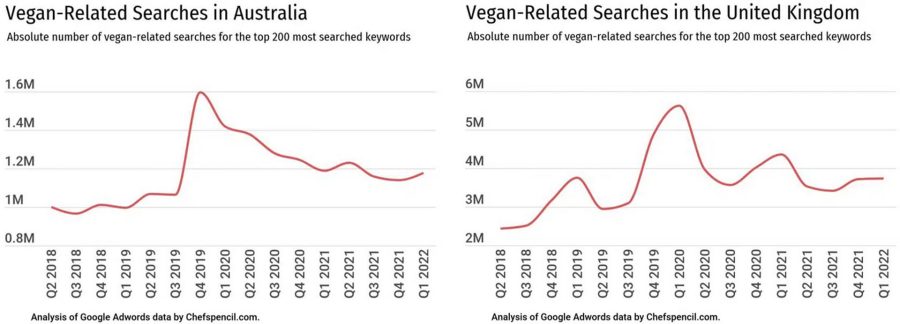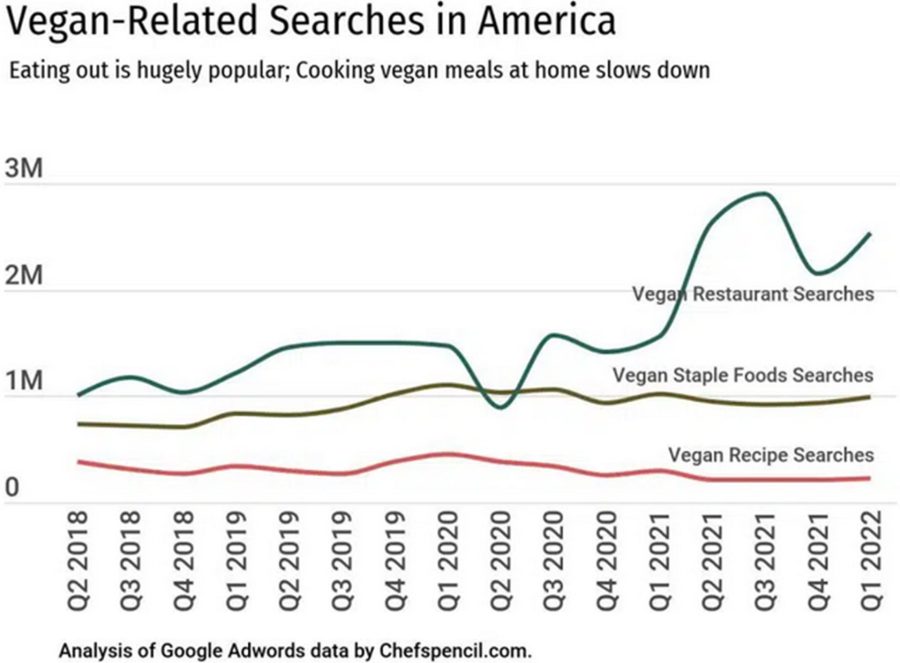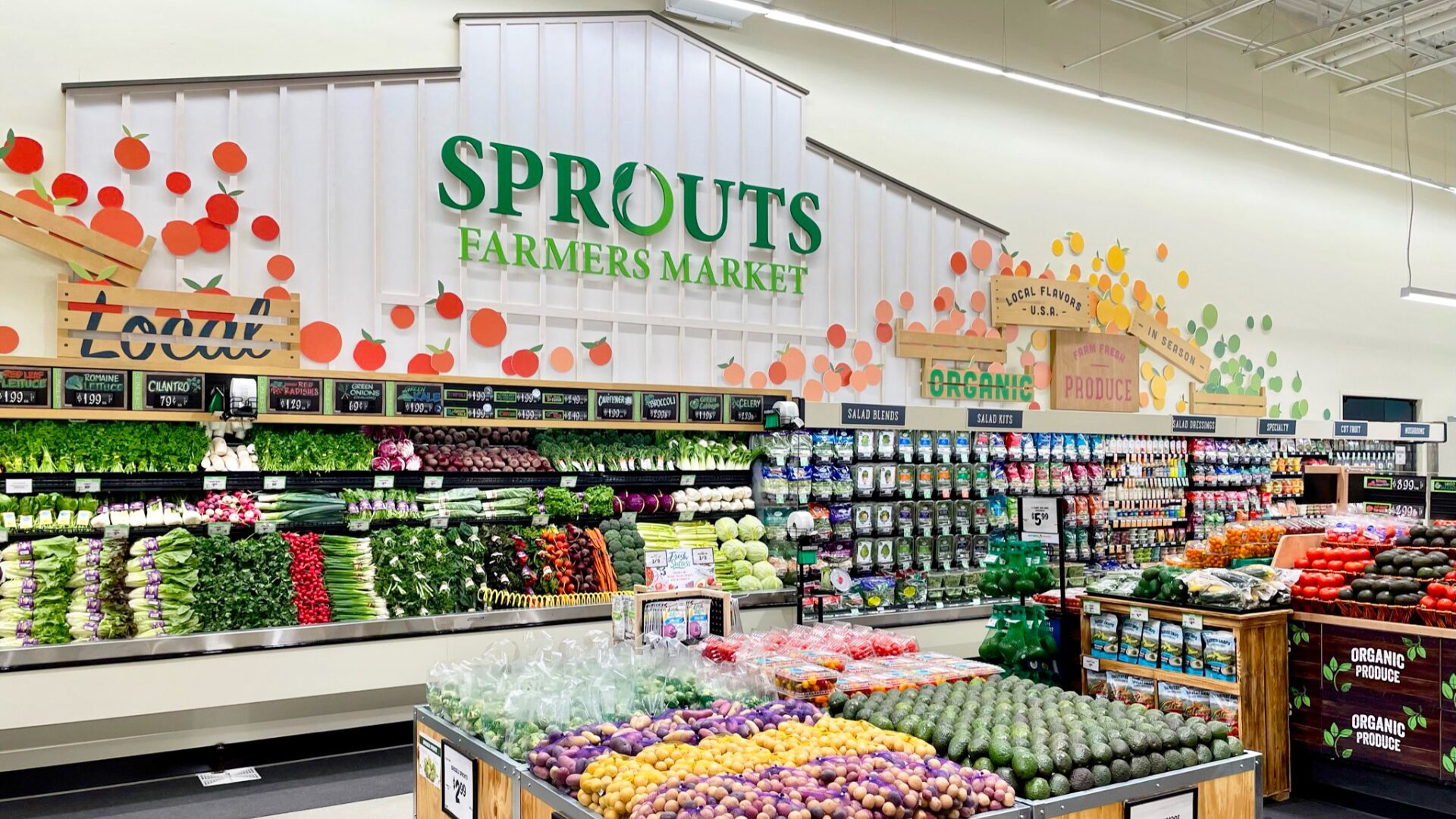Judging by online searches, veganism is not as hot as it used to be.
The global popularity of vegan-related search terms appears to be slowing down, according to a recent analysis of Google AdWords data by international food magazine Chef’s Pencil.
The study analyzed search volumes for the most popular keywords performed in multiple countries over a period of four years, with terms spanning from vegan recipes and restaurants to vegan food categories and products. Globally, the results indicated a downturn in frequency over the past two years.
The number of absolute searches in the United Kingdom and Australia for instance – which ranked among the top 5 countries for veganism in the same report – have decreased substantially compared to 2020.
In the U.S., absolute searches have increased over the past two years, but the surge is driven almost exclusively by vegan restaurant hunters. Searches for vegan recipes and certain vegan food staples have slowed.
Why the Slowdown?
As the report notes, growing interest in the flexitarian diet could be pulling focus from veganism.
Making the decision to eat less meat and more plants requires less commitment than a shift to being vegan, senior analyst Jennifer Bartashus of Bloomberg Intelligence told The Food Institute.
“People may feel they are making better choices and living a healthier lifestyle which may be enough,” said Bartashus. “And they may end up nearly defacto vegans through that choice, but they aren’t assigning that label to themselves.”
Peter Cox, author, literary agent, and former CEO of the Vegetarian Society of the United Kingdom, believes the search deceleration is tied to consumer confidence.
“When ‘going vegan’ was perceived to be new, different, and maybe a bit risky, people reached out for help and information,” said Cox. “I think it’s a sign of growing consumer knowledge about veganism, and confidence that they can make the transition smoothly.”
What’s in a Name?
By diversifying package claims to align with shifting dietary priorities, major food producers are also keeping alternative terminology top of mind with consumers.
A recent study by Veylinx which examined labeling effects on purchase interest found that calling a hot dog “meatless” instead of “vegan” boosted consumer demand by 16%. The term “vegan” was also outranked by “veggie,” “plant-based,” and “animal-free.”
To Cox, the ever-increasing range of euphemisms for the vegan diet indicates that very different demographics, markets, and publics are reinterpreting veganism according to their own preferences and nuances. “They’re basically taking ownership of it,” he said.
The decrease in demand could also tie to perceptions of quality. Although there are some excellent vegan products on the market, Bartashus said, there is room for improvement.
“As more high-quality items proliferate that meet those expectations, we could see more people call themselves vegan,” she said.













